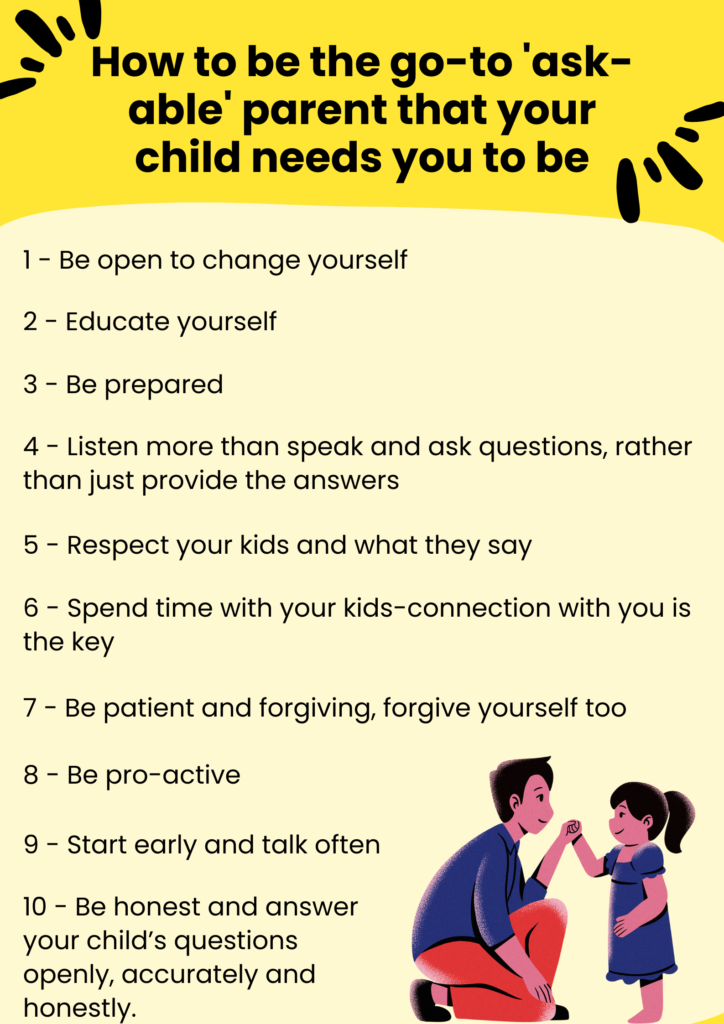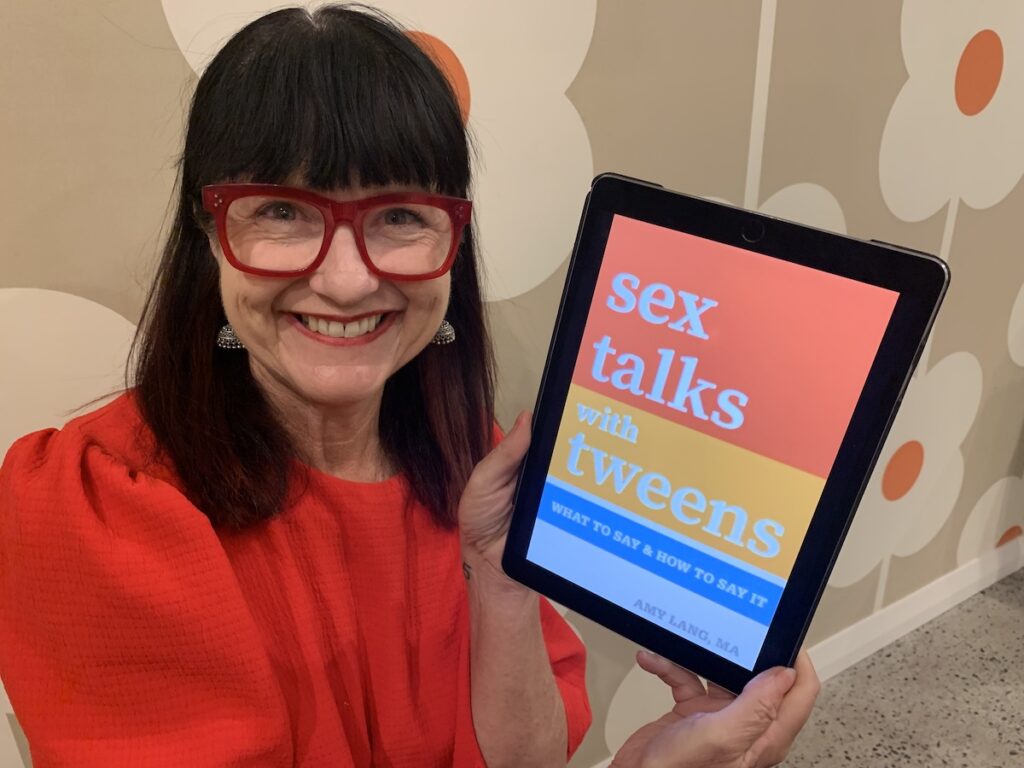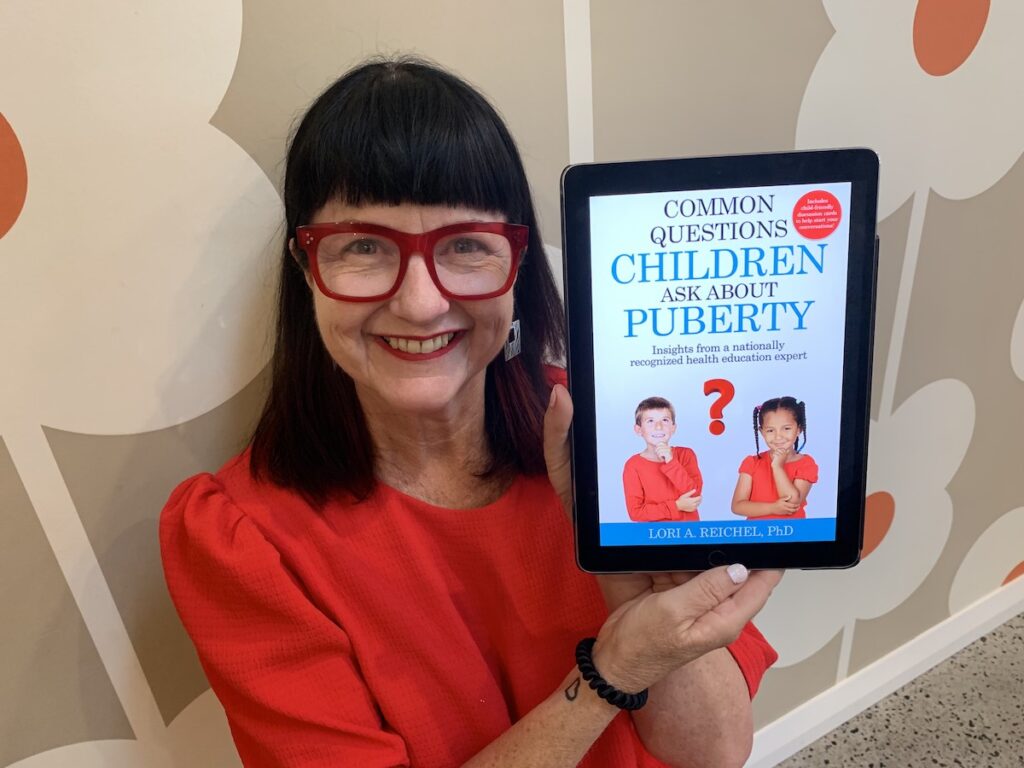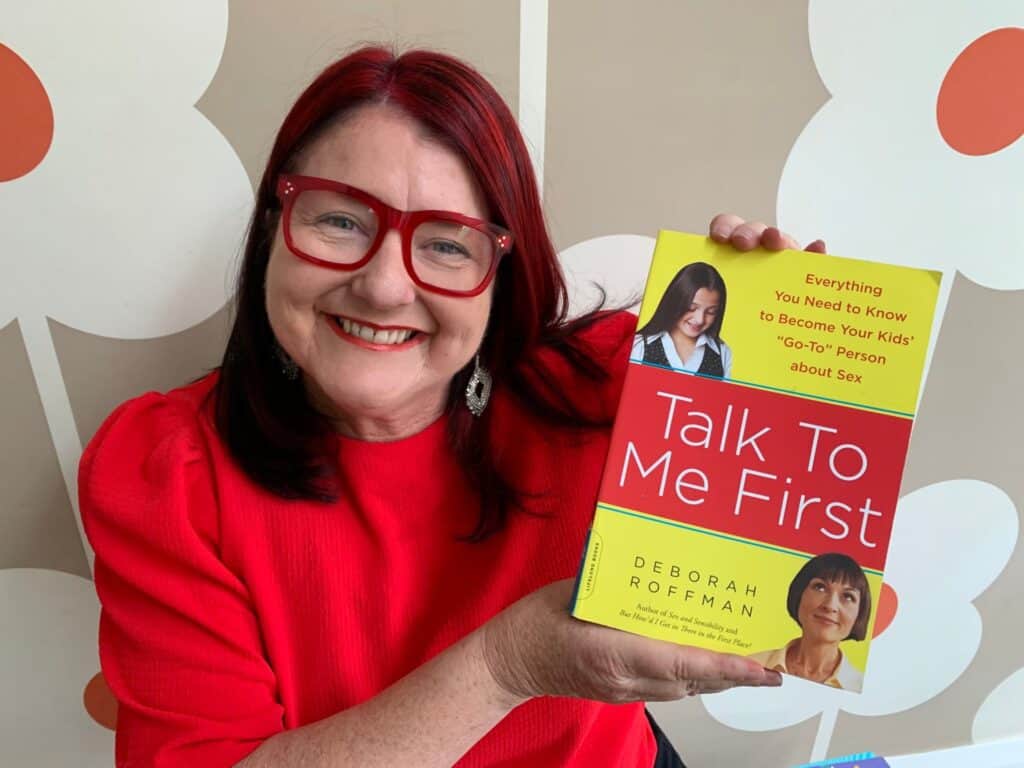How to be that go-to 'ask-able' parent
Most of us want to be a parent or carer who their child goes to if they want to know about tough topics like sex. As parents we want to be that ‘go to’ ask-able parent, but we don’t always know how, let alone what to say.
We hear voices from everywhere like the media, the internet, our families, our friend’s schools telling us what to do and what to say.
I often hear parent’s asking me questions like ‘Is my child too young?’ ‘Am I destroying their innocence?’ or ‘Do I really need to be having a conversation about pornography when they are so young?’
The great news is that we can all learn how to have these tough conversations even in the context of the beliefs and values of our family.
It takes practices to be the parent who can answer every tough question.
I have brought up three amazing kids aged 27, 24 and 23. They are incredible humans, respectful and empathetic, yet each one is so different from the others. This means I have different conversations and different ways of communicating with them. It’s not always been easy for me either, even as a sex educator. I have made many mistakes, but let’s face it, parenting is a practice that takes practise.
More than ever in a world where there is so much information, it’s important that our children know that they can talk with their parent or a trusted adult when they want to know something about sex. Most of the time it’s not what we say but how we say it. As the saying goes…our actions speak louder than words.
So here are ten ways to be the parent who your child goes to for the answers to their questions.
10 ways to be the parent who your child goes to for the answers to their questions
1 - Be open to change yourself
What I mean is that you might have previously believed something and now you don’t. For example, talking to your children about sex earlier than you might have thought. The world is a changing place and so we need to be flexible and responsive to situations and conversations as they present.
2 - Educate yourself
Education changes lives and informs the accuracy of what we tell our kids – for example, myths that we may have once been told believed about gender or periods. These myths can sometimes be harmful, like there are only two genders.
Reading books, listening to podcasts and reading articles can help us know what is correct information is. Getting yourself educated about your child’s world too e.g. social media and the music they like, can also give you material for great conversations.
TIP: Check out the resources section of my website to browse books by category.
3 - Be prepared
What might you say if your young child asks you what sex or porn means, or what’s an erection or an abortion? Work out what you believe, what you want them to know at their age, practise and be prepared for when the question is asked – as it’s more than likely to happen when you least expect it.
TIP: Click here to read how to keep your children safe online.
4 - Listen more than speak and ask questions
This is a constant learning curve for me even though my kids are adults. Often, I just blurt out information or something that I want them to hear and talk at them, when all they wanted was me to listen and love them.
Clarify what they are asking by using open ended, positive questions like ‘What would you like to know about that?’ Listening, not shaming, laughing or getting angry at them will mean that they often feel that they can come to you without judgement. This helps validate your child’s questions and feelings.
5 - Your kids deserve respect.
Even though they are children and need your guidance, support and love, their opinions, questions, thoughts, feelings, choices and boundaries are worthy of respect – even if you disagree. Knowing that you love them and don’t necessarily have all the answers (but you will find out for them) is key to ongoing and open conversations.
6 - Spend time with your kids
This seems obvious, but in our time poor world, the more you spend time with your child, the more opportunities naturally come up to talk, and more questions will be asked. Being together even when your child’s friends are around often builds trust and confidence even when you or your children find it difficult talking about tough topics.
7 - Be patient and forgiving (forgive yourself too)
Parenting is difficult and these conversations aren’t always easy, especially if your parents didn’t talk to you, and especially if you may have experienced abuse. Say sorry to your child if you have told them something that is incorrect. I have also had to forgive myself many times for my comments and reactions. So, get support, talk to your friends, and get advice from professionals too.
8 - Be pro-active
It’s our responsibility to talk with our kids, so don’t leave it up to your child to ask questions and to start conversations -even when you feel awkward, surprised or upset. Be brave even when you feel awkward, shocked or even upset.
TIP: Click here for 5 tips to have positive conversations about tough topics.
9 - Start early
Remember sex is not just about sexual intercourse or making babies and education should not just start at the age of 11 or 12 when puberty starts.
We are all born as sexual beings – you can start from when they learn to talk.
10 - Be honest and answer your child’s questions openly and honestly.
It is important to provide accurate information and use the correct words. Using slang or pet names is unsafe – especially in situations if your child is harmed or abused. Incorrect information can cause confusion and a sense of taboo and shame.
Your child may not want to come to you with their questions if they know that the topic is off limits. Remember, if you don’t know the answer, (that’s okay) tell them that you’ll find out, and keep your word. You can even tell them you are nervous and may not know all of the answers.
TIP: Click here to learn why it is important we teach our kids the correct names of genitals.
Final words
So I hope you found these 10 tips from my experience as a mum and educator helpful, and remember that it all applies over a lifetime of conversations.
Conversations that mostly come up in the everyday connections and interactions of life.
So don’t give up,
Take a big deep breath and say, ‘I’ve got this!’
I also have so many more tips and blog which you can check out on here:
I also have two online courses for pre-teens to do on their own, or together with their parents or carers. For more information, visit the pages below:
Ultimately, my tips and courses are not rocket science, but they sure will help.







